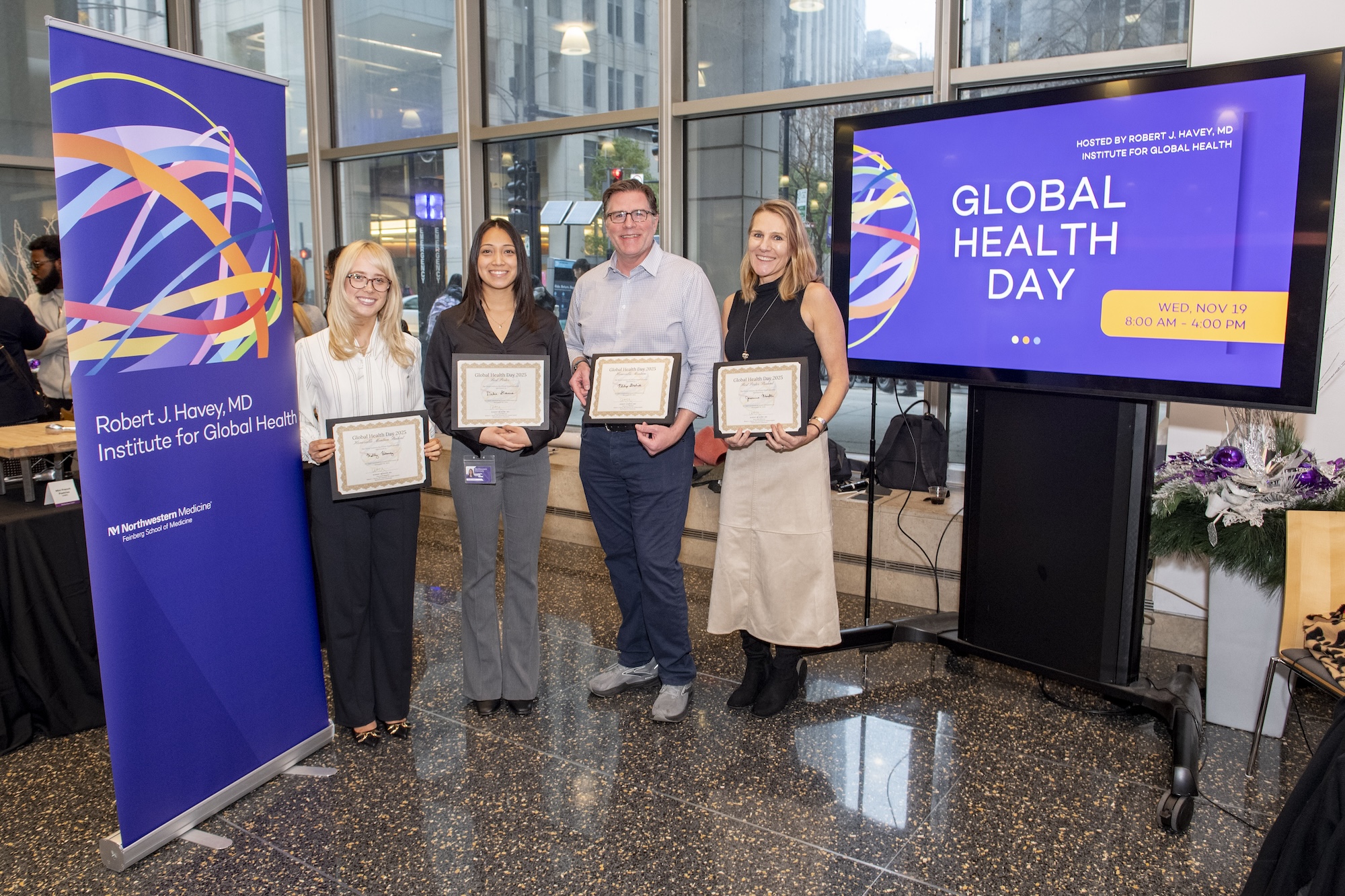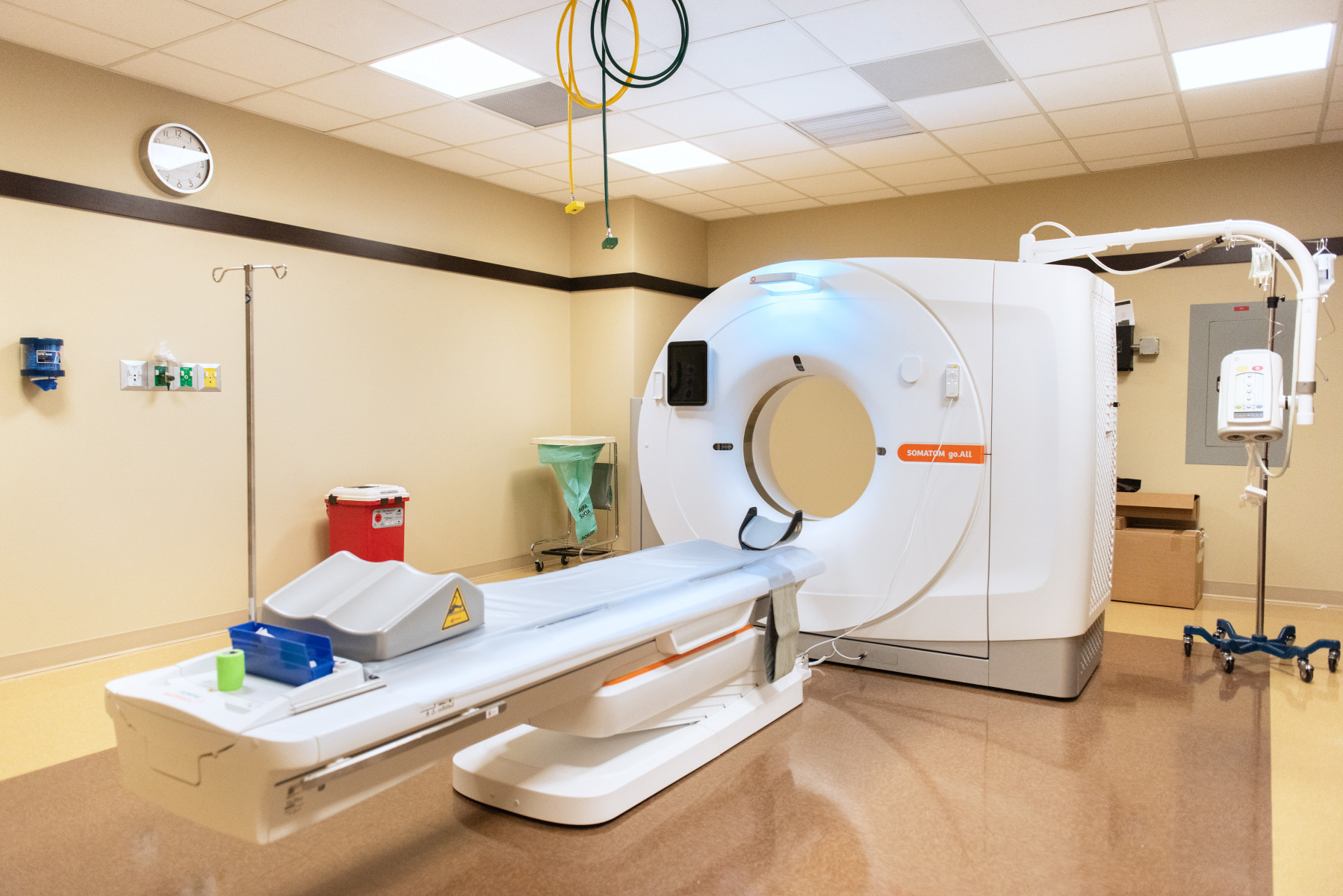Media Coverage
The work done by Northwestern University Feinberg School of Medicine faculty members (and even some students) is regularly highlighted in newspapers, online media outlets and more. Below you’ll find links to articles and videos of Feinberg in the news.
-
New York Times
–
Why Do I Wake Up Right Before My Alarm?
About three-quarters of those interviewed said they sometimes woke up before their alarms, and just under a quarter said they woke up so reliably that they never had to use an alarm. Nobody knows exactly how or why the body is able to do this, but researchers say that our biological clocks, which keep track of time, have something to do with it. Just above the optic nerve in the brain is a master clock called the suprachiasmatic nucleus, said Dr. Ravi Allada, a neurobiologist who specializes in sleep and circadian rhythms at Northwestern University. This clock synchronizes and coordinates our body’s circadian rhythms, which help us prepare for things that happen at various times of day — such as falling asleep at night and waking up in the morning.
-
CBS News
–
Malpractice lawsuits over denied abortion care may be on the horizon
A year after the overturning of Roe v. Wade, many physicians and hospitals in the states that have restricted abortion reportedly are refusing to end the pregnancies of women facing health-threatening complications out of fear they might face criminal prosecution or loss of their medical license. Some experts predict those providers could soon face a new legal threat: medical malpractice lawsuits alleging they harmed patients by failing to provide timely, necessary abortion care. Failing to counsel patients about their options and connect them with providers willing to terminate a pregnancy is also possible grounds for a malpractice suit, attorneys said. Katie Watson, JD, an associate professor at Northwestern University’s Feinberg School of Medicine who has studied state abortion bans, said counseling and referral are not prohibited under these laws and that physicians have an ethical obligation to offer those services. “I think breaching the obligation for counseling would make a strong malpractice lawsuit,” she said.
-
CNN
–
How extreme heat can kill and how you can stay safe
High temperatures are not just uncomfortable, they are bad for your health – and can even be deadly. Of all the natural disasters, extreme heat is the No. 1 killer, studies show, killing more people than hurricanes and tornadoes combined. The “most worrisome consequence” of high heat is heatstroke, said Dr. Scott Dresden, an assistant professor of emergency medicine at Northwestern University. With heatstroke, the body can’t cool itself and regulate its temperature. In normal temperatures, your body loses water through sweating, breathing and going to the bathroom. But when humidity rises above 75%, sweating becomes ineffective. Our bodies can let off heat only when the outside temperature is lower than our internal body temperature, usually around 98.6 degrees. If the body’s temperature rises quickly, its natural cooling mechanism – sweat – fails. A person’s temperature can rise to a dangerous 106 degrees or higher within just 10 or 15 minutes. This can lead to disability or even death.
-
CBS News
–
People of color, those with lower incomes have more food allergies, study
People of color and those in lower income brackets seem to be disproportionately affected by food allergies, compared with people who are White and at higher incomes, a new study finds. “Is it microbiome or disparities that we see causing other conditions that are related to food allergy, or is there something in the environment that’s triggering more food allergies? We don’t completely know,” said Dr. Ruchi Gupta, a co-author of the new study and the director of the Center for Food Allergy and Asthma Research and a professor of pediatrics at Northwestern University Feinberg School of Medicine. Regardless of the reason, Gupta thinks it is important for doctors to be aware that people of color are more likely to have food allergies and says they should screen for them. “I think these disparities have been a little bit hidden and are not getting diagnosed,” she said.
-
The Washington Post
–
He had debilitating anxiety and panic attacks. Here’s how he dealt with it.
Chris Kan remembers his first panic attack with unsettling clarity. “It felt like my head was disconnected from my body,” said Kam, who was 19 at the time. He was working as a freelance photographer an videographer during the summer to save money for school, but took on more than he could handle. Soon, his energy crashed. He lost his creativity. He thought he might find a reset in nature, he said, so he planned a camping trip to clear his head. That’s when he found himself spiraling at the camping store. He had no idea at the time that it would be the beginning of severe panic attacks — something Kam had never experienced in the past. It was terrifying. Not only did he not go on the camping trip, but he became too afraid to leave his family’s home altogether. He gave himself a 30-day challenge of visiting a new site and capturing a photo – venturing to further destinations each week. His goal was to “push myself further and further, to test my anxiety,” said Kam. Mark Reinecke, PhD, professor emeritus of psychiatry and behavioral science at Northwestern University, said Kam’s method can be adapted to help anyone dealing with anxiety or panic disorder. “What Chris did was exactly what he should do,” Reinecke said. “Small steps, mastering the experience each time, persisting even when he felt the anxiety twinging up, and dropping a reward on it to make him feel successful for doing it.”
-
New York Times
–
New Erectile Dysfunction Treatment Cleared for Over-the-Counter U.S. Sales
This month, the Food and Drug Administration approved the marketing of a new treatment for erectile dysfunction, a topical gel called Eroxon, meaning it can be sold over the counter in the United States. It is the first topical treatment for the condition to be made available without a prescription. Futura Medical, the British pharmaceutical company that produces Eroxon, claims the gel “helps men get an erection within 10 minutes” — faster than current oral options, including Viagra, which can take around 30 minutes to an hour to kick in. But because data from full clinical trials has not been published, it’s unclear how effective Eroxon actually is at helping men initiate and maintain an erection, said Dr. Joshua Halpern, a urologist at Northwestern Medicine. Other potential causes of erectile dysfunction include cancer treatment, smoking, alcohol consumption and sleep disorders, according to the C.D.C. There is also a psychological component — performance anxiety around sex can make it difficult to achieve or maintain an erection, Dr. Halpern said. Hormones play a role, too, he added, as low testosterone levels are linked with erectile dysfunction. “All these things can conspire together,” Dr. Halpern said.
-
Chicago Tribune
–
Naperville high school student confronted loss by working for state legislation on fentanyl education
Ingesting just 2 milligrams of fentanyl can be fatal, according to the U.S. Drug Enforcement Administration. Other drugs are often cut with fentanyl because of its potency and because it is cheap and easy to manufacture and transport, said Maryann Mason, PhD, an associate professor of emergency medicine at Northwestern Feinberg School of Medicine. Many users think they are taking the right dosage of a drug or opioid without realizing the concoction contains a lethal dose of fentanyl. Howard Kim, MD, MS, an emergency and addiction medicine physician and assistant professor who studies opioid overdose at Northwestern, said teens should be more aware that fentanyl may be present in many commonly used illicit drugs in order to make smart and well-informed decisions. “High schoolers have always used drugs going back many, many generations,” Kim said. “It’s just the fact now that these drugs are contaminated with fentanyl.”
-
CBS News
–
Chicago doctor shares how to help children with mental health challenges
A woman wrote CBS News sharing she feared for her son and her family’s safety due to his mental health issues. “When there is a complex profile like that, young people often need more one-on-one assistance, or they may need a higher level of staffing to make sure that their needs are met, and that people caring for them, as well as they themselves, are safe wherever they are placed and can get better,” Tali Raviv, PhD, associate professor of psychiatry and behavioral sciences at Northwestern University Feinberg School of Medicine said. “We need to focus more on prevention,” she said. “You don’t have to be a therapist to be therapeutic. We’ve all had that relationship in our lives where that teacher, or that coach, or that mentor or that pastor who was there for us when we needed it.”
Here’s what Raviv teaches adults:
– Ask children about their day.
– Inquire about their feelings.
– Don’t swoop in and take over.
– Help kids think of ways to solve their problems.
“I don’t get invited to my friend’s birthday party or someone excluded me at recess, those are ways for them to learn how to cope with the challenges we’re all gonna face in our lives,” Raviv said. -
MSN online
–
Chemotherapy drug shortages leave medical experts scrambling
Unprecedented shortages of key cancer drugs in the United States could disrupt treatment for tens of thousands of patients with various forms of the disease coming in months. With more than 10 drugs used for chemotherapy in treating cancer among the dozens considered to be in short supply by the FDA, hospitals have been forced to find new suppliers or adjust patient doses to limit disruptions in life-saving care, the experts say. Dramatic shortages have impacted healthcare for the last decade. That’s because many of them impact drugs used to treat blood and bone marrow cancers, according to Dr. Leo I Gordon, co-director of the Hematologic Malignancies Program at the Robert H. Lurie Comprehensive Cancer Center of Northwestern University in Chicago. In addition to cisplatin, among the drugs used in cancer patients considered to be in short supply recently include azacytidine, which is used to treat bone marrow cancers as well as some forms of leukemia, or blood cancers, according to the FDA.
-
CNN
–
Night owls may have unhealthy habits that lead to early death, study says
People who prefer to go to bed and get up later — a sleep chronotype known as being a night owl — may die early from bad habits they develop when they stay up late, according to a new study. Dr. Phyllis Zee, director of the Center for Circadian and Sleep Medicine at Northwestern University Feinberg School of Medicine in Chicago, who reviewed the 2022 study for CNN, said at the time “there is good evidence that being a late sleeper has been linked to a higher risk for metabolic and cardiovascular disease. “Several mechanisms have been proposed: sleep loss, circadian misalignment, eating later in the day and being exposed to less morning light and more evening light, which have all been shown to affect insulin sensitivity,” said Zee, who is also a professor of neurology at Northwestern. If being a night owl worries you, there are things you can do to flip the switch from night to day — at least a bit, Zee told CNN previously: “It’s like if you have a gene for diabetes, right? You can modify that with your lifestyle, but it doesn’t change it.” First, start with light — lots of it, just as soon as the alarm goes off. Use natural sunlight if possible, or turn on artificial lights, especially those in the blue spectrum, which tells the body to wake up.






